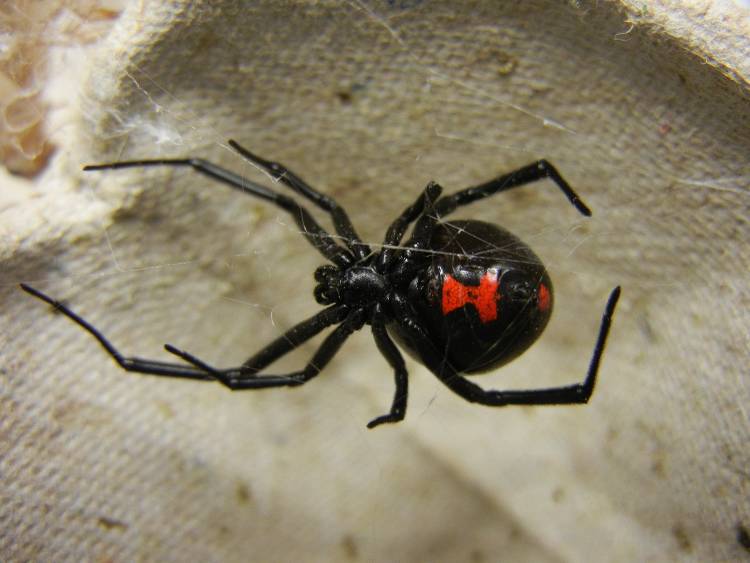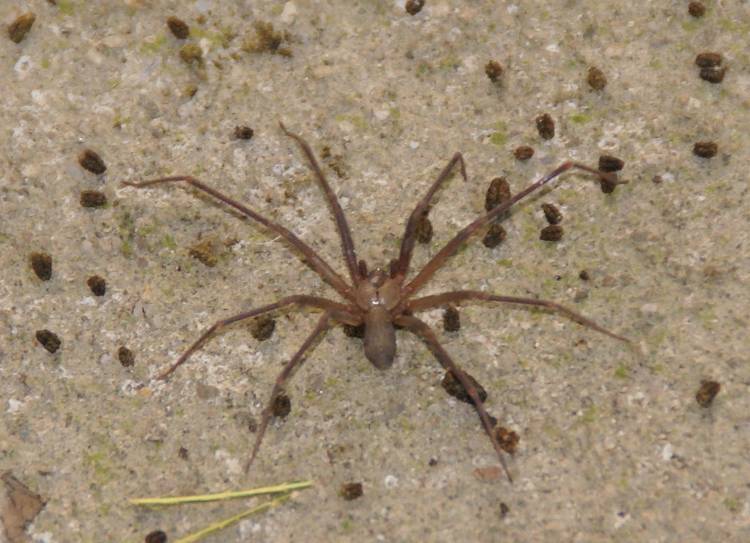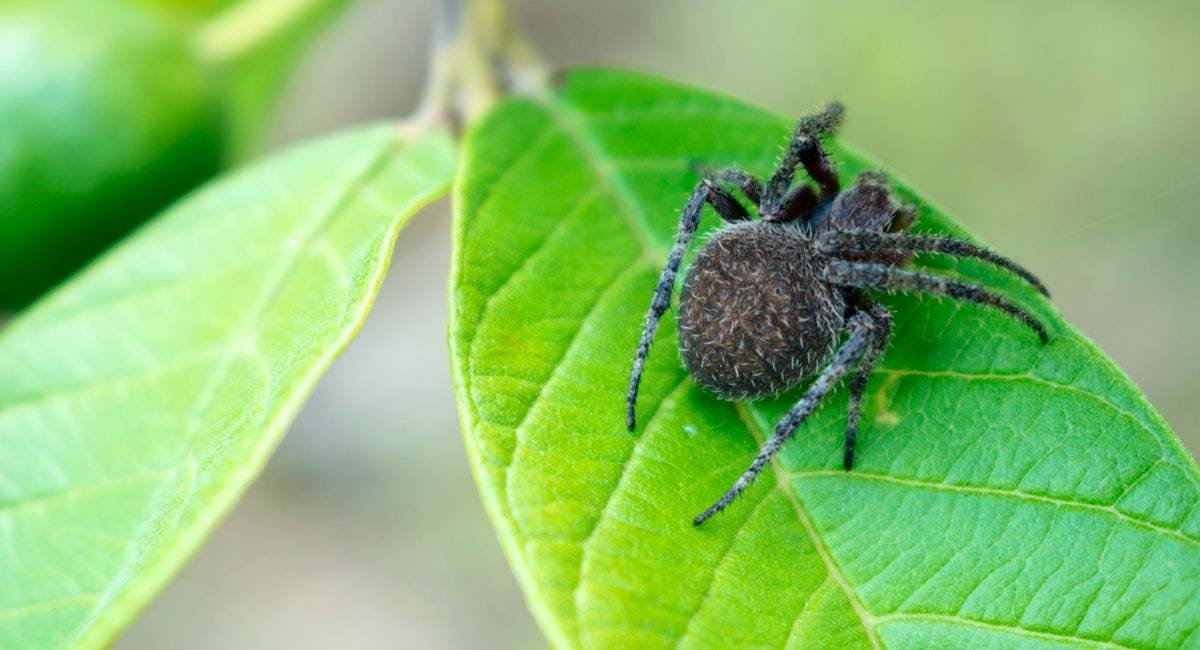Why do you need to know, How do I get rid of spiders in my tent?
Some people hesitate to go camping simply because they believe that being exposed to nature will attract more creatures like spiders inside their tents. You may be one of them!
It gets worse if you are an arachnophobe since it changes an outdoor vacation from fun to fearful.
Even though spiders do not feed on humans, their bites can cause severe allergic reactions or at the very least poison your food quickly. Therefore, it’s important to know the ways, how to block spiders coming inside the tent.
I’m sharing some useful information about spiders in hopes that the next time you travel, they won’t ruin your trip.
Identify Poisonous and Harmless Spiders
A large percentage of spiders are venomous, though not all are dangerous. It is their main defense mechanism and primary means of hunting that they use venom to paralyze their prey before they eat it.
Thus, only a few species of American spiders are dangerous, and we should be aware of them.
- Black widow spiders found in the US and southern Canada, poison the nervous system
- Brown recluse spiders found in the southern US, cause damage and breakdown to skin and tissues.
- Tarantula found in the southern US rarely bites unless threatened.


Spiders are attracted to what?
No matter if they are dangerous or not, I understand not wanting to share your sleeping bag with them. Before knowing the ways to keep spiders out of your campsites, first find out what attracts spiders.
- Food. Spiders similar to all living things are always looking for food. Insects are food for them, so they go to places where something can be grabbed.
- Weather condition. Spiders love cozy environments just like everyone else.
- Dampness. Generally, spiders prefer to live in moist places. They tend to be found near ponds, lakes, and rivers.
How do I get Rid of Spiders in My Tent? (11 Most Effective Ways)
1. Check your gear before heading out
We mostly keep our camping gear in stores or basements and spiders can make cobwebs on the gear. My method is,
- To clean my tent completely by setting it up on the lawn or yard and taking care not to bring any spiders to the campground.
- If it has holes or tears, you should check them as well.
- You can fix problem areas with duct tape if you do not have a repair kit. To keep creepy crawlers away from these patched-up portions, apply bug spray around them as well.
2. Choose a good Campsite
In most cases, spiders prefer high-humidity areas. What you can do is:
- Avoid camping near standing water.
- There should be no fallen leaves or bushes that could be home to spiders (or even snakes). These areas have an abundance of insects that spiders feed on. Consequently, they make webs there and can crawl into any living space, such as your tent.
- If there is no clean area and you are in a deep forest with trees surrounding your tent, cover it with a tarp to prevent spiders from falling above.
3. Keep your Campsite Clean
- Set up your tent away from trash, including recyclables, food scraps, or other items that may attract spiders and insects.
- When doing this, wear long pants and a long-sleeved shirt to avoid spider bite. Keep the campsite clean and immediately spray any spider deterrents so that they can begin working.
- Store your food in containers and all the trash you generate while eating meals should be stored in a closed and secured bag. Wash all sticky pots thoroughly.
Keep your campsite clean. Insects and wildlife won’t be able to survive in a clean environment.
4. Shake the Garments well
- If you accidentally leave your clothes or anything else outside your tent, make sure you shake it out thoroughly since spiders can crawl into the cloth and infest your tent.
- Shake your sleeping bag before bedtime and your shoes in the morning as well to prevent any unwanted scares.
5. Close the tent door completely
Every time you enter and exit your tent, fully zip it up to keep spiders and insects out.
6. Avoid perfumed products
Due to the lack of running water and showers, you will feel the need to use scented products. However, most fragrances, especially sweet ones, attract spiders. I recommend staying away from floral perfumes and sticking to scentless deodorants.
Adding something strong-smelling to your food, such as raw garlic or onions, will make you smell powerful, and will also prevent spiders from approaching you.
7. Take advantage of Bonefire
- You can spread the smoldering ash from your bonfire around your campsite at dry spots, which will provide enough smoke to repel bugs, as well as spiders.
- You can use fresh and dried herbs such as sage, rosemary, or eucalyptus in the fire for additional protection.
- Never leave a burning candle unattended during a dry time.
8. Ensure that your camp is dark
Keep your tent dark, as lanterns or other lights that will attract bugs and spiders will not be far behind. Switch them on only when you need them, after ensuring the tent is properly closed.
9. Avoid Wearing Green color
The spider only sees green and ultraviolet light since it has dichromatic vision. They can detect green wavelengths even from a long distance. Therefore, It is advisable to avoid wearing green if you are an arachnophobe.
10. Use Coils or Diffusers
Technological advancements have led to the development of bug-repelling diffusers and coils. They proved to be one hundred percent effective. They contain a battery-powered fan that spreads metofluthrin in the environment and instantly creates a barrier against bugs.
11. Chemical-based Sprays
Using bug repellent sprays is effective to keep bugs and spiders at bay. The use of chemical sprays in natural habitats is not something I am very fond of as they harm nature. Doesn’t it sound like spraying someone at home?
Toxic chemicals should only be used when you have no other option. Be cautious while using them in a tent since it’s a tiny space and some can get into your lungs.
Natural Spider Repellents
- Spray peppermint oil and water mixture around your bed, windows, and doorways.
- Light Cinnamon candles.
- You can make the salt solution.
- Try a vinegar mixture.
- You can use lavender, tea tree, or Eucalyptus oil.
- Make a garlic spray.
- Dust baking soda evenly around your campsite.
- Coconut oil and vinegar mixtures can be sprayed
- Rub dried herbs like mint, and rosemary on your skin for a quick, natural bug-repelling solution
Any of these substances can be taken. If you want, you can sprinkle them or make a spray using the oils and liquids in water. These are all effective methods of getting rid of spiders without harming them.
A guide to handling spider bites
- Wash your skin gently with soap and water.
- Apply an antiseptic ointment to protect against infection.
- Dabbing a cool damp cloth or ice on the bite reduces pain and swelling.
- Elevate the affected arm or leg if it is bitten.
- Seek medical assistance as soon as possible.
Conclusion
I think the question ‘How do I get rid of spiders in my tent’ is answered in this article. Summing up the whole story, you should better know the ways to keep your place clean and avoid anything that spiders like e.g Damp places, Trash, Food leftovers, Sweet fragrances, etc. This will decreases the chances to attract them. Furthermore, Try some natural repellent sprays, Diffusers, or coil repellents, and as a last option, chemical sprays to keep spiders away.

Really appreciative.Thanks for helping out!
Highly energetic article, I enjoyed that bit. Will there be a part 2?
Itís nearly impossible to find well-informed people for this topic, but you seem like you know what youíre talking about! Thanks
May I simply say what a comfort to discover somebody who genuinely knows what they are talking about over the internet. You actually understand how to bring a problem to light and make it important. More people ought to check this out and understand this side of the story. I cant believe you arent more popular because you surely possess the gift.